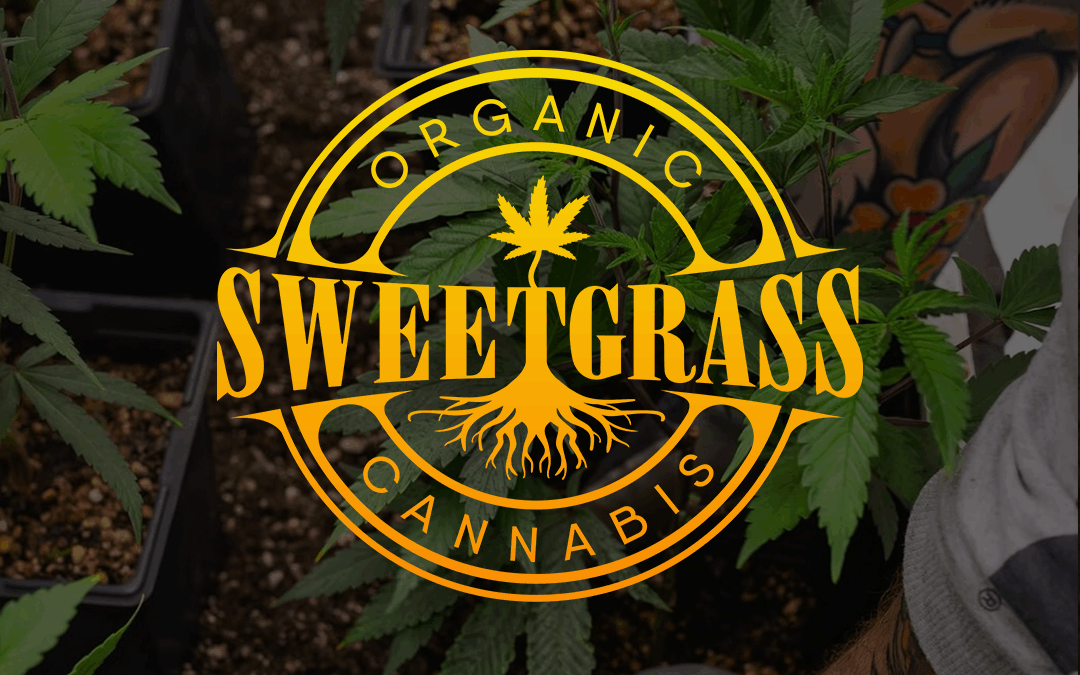
by Dominic | Jul 30, 2025 | Behind the Label
By Heather Egger
Tucked into the Kootenay mountains near Nelson, BC, Sweetgrass Cannabis is crafting something special: certified-organic, small-batch flower grown in living soil by local legacy growers. Licensed in 2020 and grounded in sustainability, this micro-cultivator brings care and precision to every step—from soil prep to slow-cure.
As the largest employer in the tiny town of Ymir (pop. ~280), Sweetgrass is more than a grow—it’s a community-powered project built on ethical practices, deep cultivation knowledge, and a plant-first philosophy. Their hands-on approach—including living soil, mountain-fed water, and organic amendments—produces flower that’s as potent as it is intentional.
With 24 team members and over 150 years of collective cultivation experience, every plant is tended with care and cured with expertise, reflecting a deep commitment to quality, nature, and craft.
Strains with Soul
Sweetgrass’s flagship cultivars are dialled-in legacy favourites, known for their consistency and character:
- Crunch Berries: A bold, fruity indica with a gassy edge and surprising potency. Deeply relaxing without couch-lock, it delivers a euphoric, heady high with distinct berry notes. Loved for its smooth smoke and balanced effects, it’s ideal for unwinding with clarity.
- Mint Chocolate Chip: A balanced hybrid with a beautifully minty, slightly citrus-forward flavour and versatile effects. It’s energizing enough for chores, study, or gardening, yet mellow enough for all-day enjoyment, making it a reliable, go-to favourite.
Sweetgrass also hunts new genetics with care, looking for standout traits, consistency, and complexity beyond just THC. One to watch: Divine Intervention, a unique sativa cross of Congo Kashmir and Wookie from Bodhi Seeds. Uplifting and cerebral, it offers a shorter-than-usual grow cycle and will debut as a limited drop in the BC market.
Hands-On Craftsmanship
Sweetgrass has used the same living soil beds since 2020, enriched with beneficial nematodes, worms, and mycelium. As one of the few certified-organic cannabis producers in Canada, certified by the Fraser Valley Organic Producers Association, they adhere to rigorous standards for soil health, inputs, and sustainability. Each round, the soil is lab-tested and amended with inputs such as lime, rock phosphate, and squid juice to maintain balance and vitality.
They irrigate with untreated, mineral-rich mountain water and use Fluence LEDs, with under-canopy lighting trials underway. This adaptive, biodiverse system mimics nature while allowing for innovation and precision, resulting in premium flower that’s slow-dried, thoughtfully cured, and genuinely craft.
A Culture of Care
Locally owned by Mathieu “Jimmy” Page and Tim Deighton, Sweetgrass is guided by the same values as Jimmy’s nearby farm-to-table restaurant: sustainability, quality, and a genuine love for the land.
The company pays above living wage and fosters a plant-first culture where everyone contributes meaningfully. With every team member experienced in cultivation and over 150 years of combined experience, Sweetgrass’s success is rooted in shared values and a commitment to care, both for the plant and each other.
Looking Ahead
Sweetgrass is preparing to launch a line of organic edibles inspired by mountain flavours and are expanding into infused pre-rolls made with their FVOPA flower and small-batch, organic water hash. Topicals infused with medicinal herbs and consumable oils are also in development for the medical market.
Each new product reflects their founding philosophy: take care of the plant, the people, and the process—and the rest will follow.

by Dominic | May 30, 2025 | Grow Up News
Presented by Mercari
Celebrating The Best in Cannabis
Toronto, ON – [May 27, 2025] – Grow Up, the leading cannabis cultivation conference and expo in Canada, is delighted to announce the winners of the 6th Annual Grow Up Awards Gala presented by Mercari. This prestigious event took place May 26, 2025 at The Clubhouse EventSpace in Etobicoke, Ontario to celebrate the brightest in the cannabis industry.
The Grow Up Awards Gala presented by Mercari is a national annual event honouring cannabis professionals and companies to recognize excellence and innovation in the industry. This year’s gala included four main categories and 33 awards, and the presentation of the Lifetime Achievement Award to Rick Simpson (author, retired power engineer, Rick Simpson Oil creator) and the Hall of Fame Award to Kevin Jodrey (Founder, One Log Cookies R&D Facility).
The Grow Up Conference was proud to introduce the inaugural Luminary Torch Award to Matthew Don-Carolis, Vice President of Sales and Business Development at Segra International. This new award was created to recognize success but more importantly it honours visionaries — those who’ve led with passion, integrity, and purpose. Those who’ve united markets, built trust, and carried the flame forward in this rapidly evolving global industry.
“Matthew Don-Carolis has helped shape the global cannabis landscape — not just with innovation, but with ethics, leadership, and legacy and culture,” said Randy Rowe, President of the Grow Up Conference. “Matthew’s work has inspired a movement and so, with great pride, we presented him with The Luminary Torch Award — in recognition of his visionary leadership, enduring passion, and a legacy that lights the path forward.“
The 11th annual Grow Up Conference & Expo continues May 27-28, 2025 at the Pearson Conference Center in Brampton with over 60 sessions with hundreds of cannabis experts, inspiring keynotes, engaging panel discussions, and strategic B2B meetings and networking events.
The Winners of the Grow Up Awards presented by Mercari:
GENERAL CATEGORY
30 and Under
Emily Riehl
Cannabis Lawyer/Firm of the Year
Trina Fraser
Grower of the Year
Rob Baldwin
Influencer of the Year
Abi Roach
Micro Producer of the Year
Northern Canna
Online Cannabis News Source
Stratcann
Processor of the Year
Atlantic Cultivation
Standard Producer of the Year
Rubicon Organics
EQUIPMENT/PRODUCTS
Best Growing Media
PRO-MIX
Best Pre-Roll Cones
Futurola USA
Environmental Impact Award
Origine Nature
Extraction Equipment
Hashtek
Laboratory Equipment
Rad Source Technologies
Lighting System
Fluence
COMPANY/SUPPLIER
Best Cannabis Cultivation Supplier/Distributor
Green Planet Wholesale
Best Extraction Services
Motif Labs
Best Lab/Testing Facility
High North Laboratories
Best Nursery
Segra International
Best Nutrients and Bio stimulants Product
CANNA
Best Packaging, Labeling & Supplies
Good 2 Grow
Cannabis Consultant of the Year
CannDelta Cannabis
Cannabis Publication of the Year
Garden Culture Magazine
Integrated Pest Management Company of the Year
Anatis Bioprotection
BRANDS & RETAIL
Accessory of the Year
Nugz Happle
Best Vape Product
CCELL
Brand of the Year
Tribal
Brand/Product Sales Agency of the Year
Mercari Agency Limited
Independent Retailer of the Year
TOKE Cannabis
Indigenous-owned Brand of the Year
All Nations Retail
Indigenous-owned Retailer of the Year
True North Cannabis
National Retail Chain of the Year
Fire and Flower
POS/CRM/Software of the Year
Breadstack
Product of the Year
Honeystick
About Grow Up Cannabis Conference and Expo: Grow Up Conference &
Expo is Canada’s premier event for cannabis cultivation, brands, and retail
with events in Toronto, Niagara Falls, Edmonton and Vancouver. Since 2017, it
has connected thousands of industry professionals through immersive conferences,
exclusive networking events, and award-winning experiences.
About Mercari Agency: Mercari is an experienced cannabis sales and marketing agency headquartered in Toronto representing cannabis brands across Canada. Mercari Agency empowers Canadian cannabis companies to bring their products to market in Canada with representation at the provincial control boards in addition to
feet on the street. Leveraging our sales team across Canada, Mercari ensures pull through to retail stores by educating budtenders as well as consumer engagement. Mercari are cannabis matchmakers, finding routes to market for our partners from farm to table. www.mercarilife.ca
Grow Up Conference & Expo
Tuesday, May 27 from 10am-5pm
Wednesday, May 28 from 10am-3pm
Pearson Conference Center
2638 Steeles Avenue East in Brampton, Ontario
growupconference.com
Media Contact: Damien Nelson, damien@wantandable.ca
Award winners and Grow Up
organizers are available for interviews.
growup.eximages.com Photography Credit: Dominic Chan

by Dominic | May 22, 2025 | Behind the Label
By Heather Egger

Edmonton’s Partake Cannabis is redefining what it means to produce craft cannabis. Founded in 2018, this small-batch producer has made a name for itself by staying true to the principles of artisanal cultivation. From the first seed to the final product, every step in the process is handled with precision and care, ensuring that consumers receive the highest quality cannabis. Let’s dive behind the label to explore the practices that make Partake stand out in Canada’s craft cannabis market.
Unique Practices: Crafted with Care
With a flower canopy just a bit larger than a micro-grow, Partake may be one of the smallest licensed producers in Canada, but their impact is substantial. Their tiny production team of just ten people doubles as an in-house focus group, ensuring every decision is rooted in knowledge and passion for the product.
Every aspect of their cultivation process is designed to preserve the plant’s natural integrity. They grow their cannabis in organic soil, using teas and organic nutrients to foster the plants without pesticides. Hand-watering, hand-trimming, and hang-drying whole plants are just some ways they maintain the highest standards. The result? Non-irradiated, pesticide-free, and consistently exceptional cannabis.
Their strain selection is equally meticulous. Partake’s upcoming release, Rainbow Zkittlez, is set to make waves with its super sweet, candy-like flavour profile and up to 5% terpene content. It’s a popular strain in California but a newcomer to the Canadian market. Also, their Orange Squeeze is a Sativa-dominant cross of Mimosa and Orange Tree that boasts a fresh citrus aroma, like cutting into a ripe orange. Available in prerolls, 3.5-gram, seven-gram and now 28-gram packs, this strain promises a powerful sensory experience.
Brand Story: Cultivating Quality
Partake’s journey is rooted in a deep respect for the plant and the consumer. CEO Michael Roellinghoff says it best: “Our customers appreciate a good smoke and know that great cannabis takes meticulous care.” Master Grower and co-founder Landon Yarmuch shares this approach, focusing on finding strains that excel in visual appeal, consistency of grind, taste, and smell. As Landon explains, “We prioritize terpenes because they carry the THC and create the effects—THC alone is the last thing we are looking for.”
Looking to the future, Partake is set to expand its offerings through an exciting partnership with Palm Gardens. Known widely for their Watermelon Sugar – the best flower in Grow Up’s 2023 Canadian Cannabis Championship – Palm Gardens will now have their products trimmed, packaged, and distributed by Partake. This partnership promises to make Palm Gardens’ popular flower more consistently available.
Production Process: Organic and Hands-on
The magic behind Partake’s cannabis begins with their commitment to organic and hands-on practices. Each plant is nurtured in organic soil, hand-watered, and attended to daily. This level of care ensures that each plant thrives, and the team takes pride in the fact that they’ve never lost a plant in the flower room.
Once harvested, the cannabis undergoes a whole-plant hang-dry in cold rooms, followed by a three to six week cure to lock in the aroma, flavour, and potency. The meticulous drying and curing processes are crucial to maintaining the quality that Partake’s customers have come to expect.
The Future of Craft: Good Weed will Prevail
Landon believes that as the craft cannabis market matures, consumers will become more discerning, seeking out products based on taste, smell, visual appeal, rather than just THC content. He sees a bright future for Partake: “As the market matures, people will want better cannabis, and the price point will become less of a concern. Good weed will prevail.”
Partake is a brand built on passion, precision, and an unwavering commitment to quality. Through innovative practices, handpicked strains, and strategic new partnerships, Partake is set to lead the way in Canada’s craft cannabis market.
Partake Cannabis is available in Alberta, Ontario, and on Mendo Medical https://mendocannabis.ca/en/. They will also launch in Saskatchewan, Manitoba, and NWT very soon.

by Dominic | May 14, 2025 | Grow Up News
The Green Tie Gala: Celebrating 10 Years of High! Canada and Cannabis Culture
On the evening of May 28th, a significant chapter in Canadian cannabis media comes to a close—but not quietly. Hosted on a private, sprawling estate, the Green Tie Gala marks the end of High! Canada Magazine as it publishes its 100th and final issue.
After a decade as one of Canada’s loudest voices in cannabis culture, High! Canada is retiring the magazine—but this gala is anything but a goodbye. It’s a celebration, a handoff, and a fundraiser all in one.
FOR EVENT TICKETS, EMAIL: EDITOR@HIGHCANADA.NET
What to Expect at the Green Tie Gala
- A Historic Farewell
- This is the last hurrah for High! Canada Magazine, a publication that has documented and championed cannabis culture for ten years.
- The magazine’s transition to Deep Culture Media signals a new direction—one focused on broader creative and cultural content, while still honoring its roots.
- CCTA Canadian Cannabis Tourism Awards
- The inaugural CCTA Awards will take place during the event, recognizing trailblazers in cannabis tourism.
- Three awards will be presented throughout the night to standout contributors in the space. Randy Rowe, President & Co-Founder of GROW UP Conference & Expo will be receiving the Lifetime Achievement Award at the event.

- Live Music on the Estate
- The Killing Time Band headlines the main stage, bringing high-energy rock reggae to the celebration.
- More acts and performers are expected to be announced soon.
- Cannabis + Culinary Activations
- Aggressive Organics will be serving food designed to impress even the most seasoned event-goer.
- Cannabis brands will activate booths for sampling and engagement.
- Alcohol sponsors will also be part of the mix, offering curated drink experiences.
Ticket Information and Funding Breakdown
Tickets: $100 per person
Funds raised from ticket sales are transparently divided into four equal parts:
- 25% – Event production costs for the Green Tie Gala
- 25% – Startup support for Deep Culture Media
- 25% – Funding for the Artist Venue Trust, helping to protect and preserve live music venues
- 25% – New creative bursaries under Deep Culture and Artist Venue Trust, helping emerging artists access funding
A Collaboration for the Culture
The event is being held in partnership with Artist Venue Trust, a not-for-profit group working to sustain Canada’s creative scene, especially live music. The goal: raise money, raise awareness, and raise a toast to cannabis culture, Canadian creativity, and the next era of independent media.
Final Thoughts
If you’ve ever read High! Canada Magazine, now’s the time to show up, say thanks, and be part of what comes next. The Green Tie Gala isn’t just an end—it’s a shift toward something bigger, more inclusive, and deeply rooted in art, culture, and community.
Tickets are limited. Dress code: Green Tie Optional. Celebration: Mandatory.

by Dominic | May 7, 2025 | Grow Up News
Meet the Pre-Roll Powerhouse at Grow Up Toronto 2025

The Cones Factory isn’t just another supplier — we’re one of the largest pre-roll cone manufacturers in the world, proudly serving some of the most recognized cannabis brands in the industry.
The Cones Factory offers a wide selection of bulk pre-rolled cones at unbeatable prices. Our Health Canada-compliant cones, precisely engineered to fit seamlessly into your machines, are perfect for bulk sales, dispensaries, and cannabis brands dedicated to providing safe, consistent, and reliable products.
The Cones Factory offers custom branded cones.
With their customization options, creating the perfect cones has never been easier. Show your customers that you value quality with unique designs and true craftsmanship. Craft the ideal pre roll with premium bud on the inside and your brand name on the outside.
The Cones Factory has everything you need to dazzle your customers and have them coming back for more time and time again. Visit theconesfactory.com/pages/custom-pre-rolled-cones to learn more.
If you’re heading to Grow Up Toronto 2025, make sure to swing by our booth. Here’s why:
- Fast Lead Times – Speed matters. We deliver quickly so your supply chain keeps moving.
- Fully Customizable Cones – Shape, size, branding, filters, packaging – we help you create a product that’s actually yours.
- Scalable Solutions – Whether you’re producing thousands or millions, we’re built to grow with you.
- Shelf-Ready Presentation – Our cones are made to stand out, not blend in.

You’ll get a chance to:
✅ See our latest product lines and innovations
✅ Speak directly with our product experts
✅ Explore private label options and custom builds
Let’s talk cones, customization, and scaling up your brand.
Visit us at Grow Up Toronto 2025.
Learn more:
🌐 www.theconesfactory.com

by Dominic | May 1, 2025 | Grow Up News
CANNA is proud to once again to sponsor the Networking Lounge at the Grow Up Conference & Expo—this May in Toronto!
Join us at the Lounge and Outdoor Consumption Area, your go-to destination for connection, conversation, and cultivation.
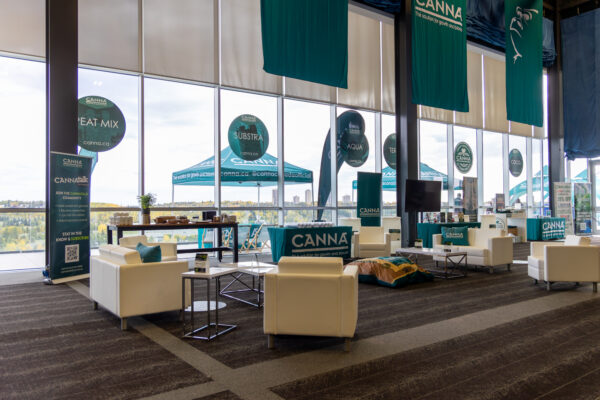
Whether you’re looking to meet new industry peers or reconnect with long-time colleagues, the CANNA Lounge is where the community comes together.
☕ Join Us For The Exhibitor and VIP Morning Coffee & Networking between 9 and 10 AM on the 27-28th In the CANNA Lounge
Exhibitors and sponsors, kickstart your mornings with CANNA’s VIP coffee networking experience—because great conversations start with a great cup.
Explore CANNA Innovations
We’re showcasing our large-scale fertilizer solutions and newest product drops, including:
Visit Us at the Genetic Exchange
For the first time, CANNA will also be participating in Grow Up’s , where we’ll be giving away CANNA Start and CANNA Rootplugs —our dynamic duo to help kick off your seed-starting journey the right way.

Join Us at the Grower’s Luncheon
CANNA is also proud to be part of the Grower’s Luncheon, sponsored by our partners at Biofloral.
As always, we’re showing up to support our growing community and celebrate the passionate cultivators who keep this industry thriving.
Swing by the Lounge & Booth for CANNA Giveaways
Stop in, say hi to the CANNA crew, and walk away with some premium swag and expert cultivation advice.
We can’t wait to connect with you—see you in Toronto!
#GrowWithCANNA #CANNACanada | #GrowUpConference

by Dominic | Mar 3, 2025 | Grow Up News
Calgary Passes Groundbreaking Law on Cannabis Sales at Events: A Win for Cannabis Consumers and Brands
In a landmark decision, Calgary has recently passed a bylaw allowing cannabis sales at adult-only events, marking a significant shift in the city’s approach to cannabis accessibility and consumption. This progressive move opens up new opportunities for both consumers and cannabis brands, potentially reshaping the landscape of event experiences in the city.
Calgary’s decision to allow cannabis sales at adult-only events represents a significant step forward in cannabis accessibility and normalization. By creating new opportunities for both consumers and brands, this law has the potential to transform event experiences in the city, fostering a more inclusive and diverse event culture while promoting responsible cannabis consumption.
This decision not only benefits the growers of Alberta, it also benefits the recreational users by allowing access to new products that they may not have known about.” says Randy Rowe, president of Grow Up Conference and Expo. “We look forward to potentially bringing our event to Calgary
A New Era of Convenience for Cannabis Consumers
The newly passed law brings a host of benefits for cannabis enthusiasts attending events in Calgary:
Enhanced Accessibility and Convenience
One of the most immediate advantages for consumers is the increased accessibility to cannabis products during events. No longer will attendees need to leave the venue to purchase cannabis, as licensed retailers will be permitted to set up temporary sales points on-site. This convenience factor is likely to be highly appreciated by event-goers, enhancing their overall experience and allowing them to fully immerse themselves in the event atmosphere without interruption.
A Regulated and Safe Environment
By integrating cannabis sales into official event structures, consumers can expect a more regulated and safer purchasing environment. This aligns with the broader consumer expectation for safe and legal access to cannabis, providing peace of mind to those who wish to partake in cannabis consumption during events.
Diverse Product Offerings
While specific details are yet to be confirmed, it’s reasonable to anticipate that consumers will have access to a variety of cannabis products at these events. This could potentially include different strains, edibles, and other cannabis-infused products, mirroring the diversity found in traditional retail stores. Such variety would cater to different preferences and consumption methods, enhancing the overall consumer experience.
Cultural Acceptance and Normalization
The integration of cannabis sales into mainstream events signals a growing social and cultural acceptance of cannabis use. For many consumers, this represents a positive step towards normalizing cannabis as part of adult recreational activities, potentially reducing stigma and promoting responsible consumption.
Opportunities Abound for Cannabis Brands
The new law doesn’t just benefit consumers; it also presents significant opportunities for cannabis brands to expand their reach and engage with their audience in novel ways:
Experiential Marketing Opportunities
Cannabis brands now have the chance to create immersive experiences that allow consumers to interact with their products in a controlled and informative environment. This form of experiential marketing can significantly enhance brand recognition and foster deeper connections with consumers.
Direct Consumer Engagement
Events provide an unparalleled platform for brands to engage directly with their target audience. This face-to-face interaction allows for immediate feedback, product education, and the building of brand loyalty in ways that traditional retail settings cannot match.
Market Expansion and Brand Visibility
Participation in events offers brands the opportunity to expand their market reach and increase visibility. By showcasing their products at diverse events, brands can tap into new consumer segments and build a loyal customer base beyond their usual retail channels.
Collaborative Ventures
The new law encourages collaborations between cannabis brands and event organizers. For instance, High Tide, a prominent player in the Canadian cannabis market, has already announced a joint venture with Positive Intent Events (PIE) to strengthen its position in the cannabis hospitality sector. Such partnerships can lead to innovative event concepts and unique brand experiences.
Educational Platforms
Events serve as excellent platforms for brands to educate consumers about their products, including benefits, usage guidelines, and safety considerations. This aligns with the industry trend of promoting responsible consumption and can help brands position themselves as responsible and consumer-centric.
Looking Ahead: The Future of Cannabis Events in Calgary
As Calgary implements this groundbreaking law, it sets a precedent that other Canadian cities may follow. The success of this initiative could potentially influence regulations in other municipalities, leading to a more uniform approach to cannabis event sales across the country.
It’s important to note that the implementation of this law will likely be closely monitored. Concerns about managing cannabis consumption at events, ensuring that designated areas are well-regulated, and addressing issues like secondhand smoke will need to be carefully addressed to ensure the success and sustainability of this new approach.

by Dominic | Feb 27, 2025 | Behind the Label
By Heather Egger
Nestled in the heart of the Rockies, Rocky Mountain Cannabis (RMC) is a beacon of innovation and integrity in the craft cannabis industry. Owned and operated by Tyler Tetreault, this cutting-edge Golden, BC facility is gaining attention for their commitment to quality and award-winning cannabis. 
A Glimpse into Rocky Mountain Cannabis
Rocky Mountain Cannabis has carved out a unique space in the craft cannabis market, thanks to their high-quality cannabis that stands out for its rich, nuanced flavours and heavy effects. Located in Golden, BC, the facility benefits from abundant fresh mountain water from the Columbia, Kicking Horse, and Blaeberry rivers, which nurtures their indoor-grown plants.
Tyler and his family have deep roots in the town, extending their green thumb beyond cannabis. Their involvement in the community includes running a local garden center, a non-profit karate school, and a daycare centre.
What Sets RMC Apart
At the core of RMC’s philosophy are three fundamental values: quality, trust, and integrity. “Trust and integrity are the real standards—every decision we make considers these values first,” says Tyler. Being 100% grower-owned, RMC’s commitment to quality is unwavering.
RMC’s standout strains include Banjo, a 2024 Rosebud Cup second-place winner known for its unique blend of cheese, blueberry, and citrus flavours, and Mercy, a winner at the 2024 BC Craft Farmers Cannabis Summit. The strain’s name highlights its high myrcene content and is an educational tool for consumers learning about terpenes.
Overcoming Challenges
Operating in a market that often prioritizes potency and price over quality, Tyler faces the challenge of educating consumers about the broader benefits of cannabis. “Consumers are missing out on some great weed when they focus on just THC,” he notes, emphasizing the importance of overall plant health and growth. “We want to maximize all 315 compounds that occur in cannabis, not just one or two,” he says.
Balancing quality with the need to scale operations is another challenge, but these two goals are inseparable for Tyler. Expansion at RMC is carefully managed to ensure that their high standards of craft quality remain intact.
The Story Behind the Brand
Tyler’s journey into the cannabis industry began at Olds College, where he studied horticulture. He started a greenhouse and garden center alongside his wife Pamela, eventually expanding into Rocky Mountain Cannabis. Their brand is guided by principles of quality, trust, and integrity, with a strong emphasis on ensuring consistency and building consumer trust.
Sustainability is also a pragmatic part of RMC’s operation. The team is dedicated to reusing, recycling, and reducing waste, maximizing resources while minimizing their environmental footprint.
Looking ahead, RMC is poised for growth. Five new cultivars are waiting to hit the BC market, and the company plans to expand into Alberta by the end of the year. Additionally, the company is gearing up to bring processing in-house, further enhancing its control over product quality.
Growing with Care
RMC’s cultivation process is a carefully calibrated blend of science and artistry. They use coco as a growing medium enriched with microbes to promote root health. Balanced, clean nutrients are a staple in their cultivation process, ensuring each plant reaches its full potential.
Community-Driven Innovation
Rocky Mountain Cannabis is more than just a producer; they are a community-driven, quality-first brand setting new standards in the craft cannabis industry. Keep an eye on their upcoming releases as they continue to grow and innovate in the cannabis space.
Q: What role do you see Rocky Mountain Cannabis playing in shaping the future of the cannabis industry?
A: Moving forward, our place in this industry is to target those who are hungry for trust and integrity. We are set to make this the industry standard by leading by example, delivering on our commitments, consistently bringing the fire, and redefining what quality means in this maturing industry.
Websites and socials:
Rocky Mountain Cannabis: https://rockymountaincannabis.ca
Facebook: Rocky Mountain Cannabis on FB
Find Rocky Mountain Cannabis products on CountCanna.ca

by Grow Up Conference | Jan 7, 2025 | Garden Culture Magazine, Media Partners
What will your growing space look like in 2025? Every year, the Garden Media Group (GMG) lists trends it predicts will take over in our gardens. We’re all for being unique and doing your own thing, but we also like where the next 12 months are going!
GMG predicts we’ll go through a ‘natural renaissance,’ with people recognizing the need for sustainable green spaces everywhere. Indoors, outdoors, in cities, and along roadsides, nature is taking its rightful place at the top of the food chain.
Prediction Track Record
Garden Media Group knows what’s up. Here are a few trends they were bang on about over the years:
So, what do we have on tap for the next year? Here’s what GMG is predicting for our 2025 gardening season.
Reclaiming Urban Spaces
Out with the concrete jungles, we want green rooftops, tiny urban forests, and community garden spaces. The benefits of greening our cities are clear: plants clean the air, help absorb stormwater runoff, and reduce the heat island effect. Growing fruits and veggies in cities reduces food miles and our carbon footprint! We’re especially keen on the tiny forests, also known as Miyawaki forests. This method involves densely planting fast-growing native shrubs and trees in spaces as small as 100 meters squared. The forest matures within about a decade, and despite its small size, it has an enormous impact on the community around it.

Plant Tunes
Check Spotify, and you’ll find hundreds of playlists curated for gardens and houseplants. Studies show that music promotes plant growth, and we can use the help to get the most out of our green little friends. Music also helps humans slow down and relax, so listening to tunes you love in the garden may help you enhance your personal space and mood and better connect with nature.

AI-Generated Gardens
GMG touts artificial intelligence as a way for people to escape the boundaries of reality and experience dreamlike, colorful, and safe environments. People are drawn to unreal gardens, which may result in plant enthusiasts trying to replicate what they’re seeing on a screen in real life. Check out Hitachi Seaside Park’s nemophilia installation as an example. GMG says AI-generated relaxation videos featuring plants are getting millions of views, too.
Lived-In Gardens
We won’t be sad to say goodbye to manicured garden spaces. Today, people want to create gardens that look like they’ve been around for decades. Chaos gardening offers the opportunity to do just that by crowding plants and allowing nature to take its course. Creating layered spaces with perennials and annuals is pleasing to the eye and is exactly what Mother Nature has always intended. Look to a forest for inspiration! Long-blooming, fast-growing native plants are attractive to people and pollinators, along with plant varieties that climb up an archway, trellis, or side of a house. Moss lawns are expected to rise in popularity this year because they offer that ‘established’ look people crave and plenty of environmental benefits, too!
Living Fences
Need some privacy from your neighbors? Looking to block out something ugly next door? GMG predicts people will continue to invest in their outdoor spaces this year and will pay particular attention to creating functional, living fences. These barriers are beautiful and offer all the perks associated with plants. We’re not talking about traditional hedges here. Think layered, biodiverse plantings of native flowers and shrubs. Selecting plants appropriate for your region will ensure longevity, year-round interest, and a safe environment for insects and other critters seeking refuge. If you live in an urban area or rent your space, you can achieve the same effect with a living fence made with a container garden!

Foraging
Amateur foragers build their bouquets with flowers from the gardens, using unlikely combinations of blooms to create stunning designs. I recently created a vase of flowers that includes dried hydrangea, blueberry branches, and plumes of Karl Foerster grasses. It looks incredible, and it’s unique to my landscape! Boutique flower farms are on the rise, and more U-Pick options are available as people look to engage with their local communities and the environment to boost their well-being. People also want to source wild foods like mushrooms, dandelions, and other edible weeds. Expect more classes and resources on forging safely, ethically, and responsibly.

Eclectic Houseplants
Like fashion, houseplants come in and out of style. In 2025, GMG predicts that plants with cutouts in their foliage will continue to do well. The report says searches for Monstera have jumped 600% on Google Trends as people look to make a statement in their interior living spaces with something unique. Other interesting houseplant choices may include philodendrons, pothos, and umbrella trees.

Color of the Year
Finally, GMG says teal will be the year’s color to reflect gorgeous skies, Caribbean seas, and relaxing moods. Gardeners may brighten their spaces with teal plants like Blue Chalk Stick succulents, Beyond Blue fescue grasses, Allium ceasium Zamin, Brunnera Jack Frost, and more.
There you have it! What trends can you get on board with for 2025?

by Grow Up Conference | Jan 7, 2025 | Cannabis News Wire, Media Partners
Medical marijuana patients in Kentucky will not have access to guns and ammunition due to federal law. Kentucky’s medical marijuana legalization bill was signed into law in March 2023 but took effect on January 1st, 2025, making it legal for approved citizens of the Commonwealth of Kentucky to consume medical-grade cannabis.
However, Kentuckians will also have to contend with federal law, which currently outlaws cannabis production and consumption, and how it differs from their state’s new medical cannabis law. The U.S. Bureau of Alcohol, Tobacco, Firearms, and Explosives recently sent a letter informing federal firearms licensees that individuals who ‘unlawfully’ use controlled substances are legally barred from possessing guns or ammunition.
The Bureau also noted that such individuals aren’t allowed to transport or ship firearms. U.S. Federal law currently classifies marijuana as a Class I controlled substance with high potential for abuse and no proven medical benefits, contrary to dozens of states that have allowed medical and recreational cannabis consumption.
The difference between state and federal cannabis laws has been a constant thorn in the state-level cannabis industry’s side and consumers often end up as the casualties. In Kentucky, the federal government has made it clear that Kentuckians will have to choose between gun ownership and medical marijuana.
Kentucky NORML Executive Director Matthew Bratcher says he is happy about the medical marijuana progress Kentucky has made and hopes the federal government will update its marijuana laws.
This isn’t the first time Americans in a state with a regulated cannabis market have been forced to choose between owning a gun or benefiting from medical marijuana and it won’t be the last as long as cannabis is controlled at the federal level.
Many Kentuckians weren’t pleased to learn that consuming medical marijuana would disqualify them from gun ownership. In the comment section of a WPSD Local 6 Facebook post about the policy, one wondered why consuming alcohol, which causes significantly more mental and physical impairment compared to cannabis, doesn’t make it illegal to own a firearm, yet consuming cannabis does.
Another said gun ownership is a constitutional right and argued that Kentuckians should not be forced to give up their rights to access legal medication.
According to a previous statement from Batcher, the law preventing marijuana users from owning guns has seen limited enforcement in other states that legalized marijuana before Kentucky. He says firearm owners in Kentucky may not have to deal with the police when they seek medical marijuana licenses.
In the meantime, Batcher hopes Kentucky’s medical cannabis program expands its list of qualifying medical conditions and increases the number of eligible Kentuckians to hundreds of thousands.
Marijuana industry actors like Trulieve Cannabis Corp. (CSE: TRUL) (OTCQX: TCNNF) may be saddened that patients who need to manage their symptoms using medical marijuana are placed in a situation where they have to choose between taking the medical cannabis products they need or avoid using those products in order to retain their legally-acquired firearms.
About CannabisNewsWire
CannabisNewsWire (“CNW”) is a specialized communications platform with a focus on cannabis news and the cannabis sector. It is one of 70+ brands within the Dynamic Brand Portfolio @ IBN that delivers: (1) access to a vast network of wire solutions via InvestorWire to efficiently and effectively reach a myriad of target markets, demographics and diverse industries; (2) article and editorial syndication to 5,000+ outlets; (3) enhanced press release enhancement to ensure maximum impact; (4) social media distribution via IBN to millions of social media followers; and (5) a full array of tailored corporate communications solutions. With broad reach and a seasoned team of contributing journalists and writers, CNW is uniquely positioned to best serve private and public companies that want to reach a wide audience of investors, influencers, consumers, journalists and the general public. By cutting through the overload of information in today’s market, CNW brings its clients unparalleled recognition and brand awareness. CNW is where breaking news, insightful content and actionable information converge.
To receive SMS alerts from CNW, text CANNABIS to 888-902-4192 (U.S. Mobile Phones Only)
For more information, please visit https://www.CannabisNewsWire.com
Please see full terms of use and disclaimers on the CannabisNewsWire website applicable to all content provided by CNW, wherever published or re-published: https://www.CannabisNewsWire.com/Disclaimer
CannabisNewsWire
Denver, CO
www.CannabisNewsWire.com
303.498.7722 Office
Editor@CannabisNewsWire.com
CannabisNewsWire is powered by IBN







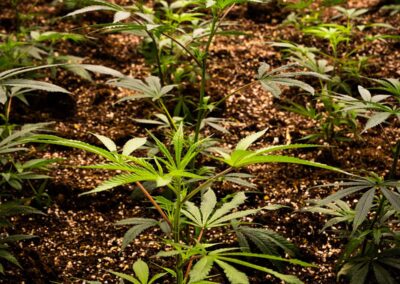






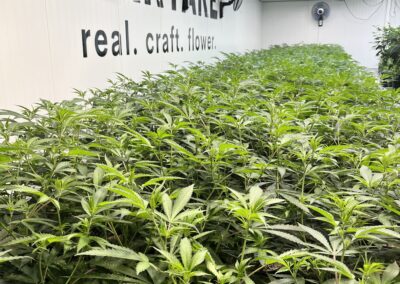
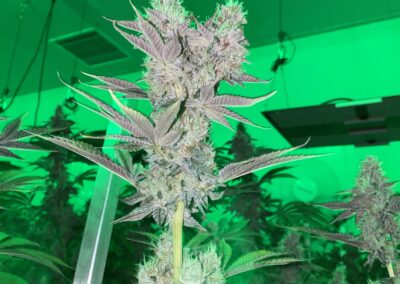
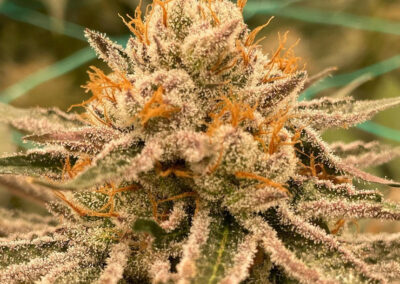













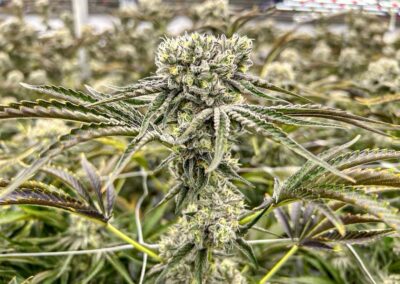
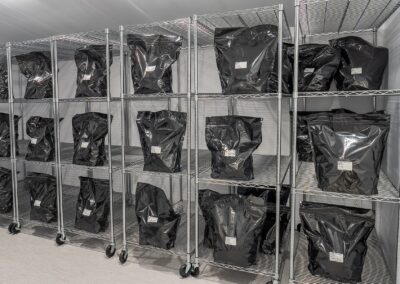
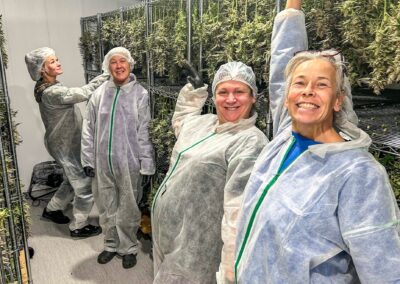
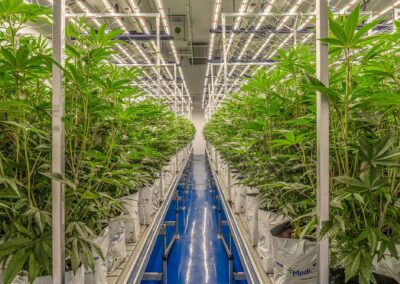
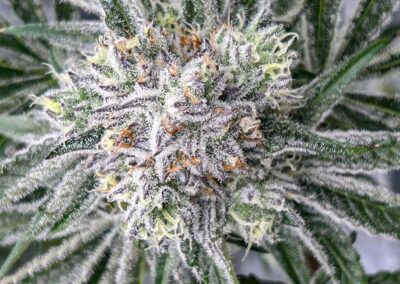



Recent Comments